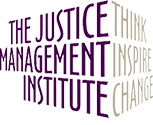This week marks the 50th anniversary of police brutality in Selma, Alabama. It seems an apropos time to bring forth the notion of justice. October 3, 1995, I can recall the exact moment when the public received the “not guilty” verdict in the O.J. Simpson trial. I was sitting in a dental chair having my teeth cleaned, and suddenly the entire office ceased what they were doing and openly and loudly shared their feelings as to whether justice was rendered or not. They offered up their opinions and emotions based on their experiences and perceptions about what should or should not amount to a just decision. Many people, me included, believe that O.J. Simpson was responsible for the murders of Nicole Smith Simpson and Ronald Goldman.
I also believe that the jury, in this case, rendered the best decision they could with the information they had before them. Now, we can argue about Judge Ito and his courtroom management; we can argue about how the “glove” was presented and handled in court; we can argue about the jury makeup and its proclivity towards biases; and on and on.
What matters here is that justice is both personal and systematic. On a personal level, we respond to our experiences, our perceptions, our hopefulness, our trust in decisions makers, and the fair application of the laws that govern us. As a justice system, we need to be confident that our decision makers are free and clear of persuasion and corruption and can apply the rules impartially. We need to trust that our systems will apply the laws, policies and procedures with dignity and fairness, regardless of race, ethnicity, gender, age, education, and income.
On a recent Southwest Airline flight, my husband and I experienced an injustice that did not bring out the best in either of us. Southwest Airlines tells its employees (primarily flight attendants) that they are not to intervene in issues related to their open seating system. I'm certain many of you are quite familiar with the A, B, or C boarding procedures. And, many of us pay the extra $12.50 per flight leg to get a slight advantage in locating and securing good (and I use that term loosely) seats. My husband and I had paid our early boarding fee and proceeded to board the plane and locate a seat that would best accommodate my long legs. My husband said to take the seat in the row behind the exit row, as it would give me more room. As we went to sit in the middle and aisle seats, the gentleman in the window seat said that his friend was in the bathroom. We both looked up and noticed that the bathroom doors were open. As we continued to monitor the boarding process, window seat’s friend sat down in the aisle and leaned to his friend and said “thanks, man.” At that point, tired and coping with the reason we were traveling – celebrating the life of my husband’s recently deceased father – my husband leans forward and asks the man in the window seat how it feels to be a liar and to live with a skewed moral compass. It wasn’t pretty, and it certainly isn’t one of my husband’s finest moments. Still, it was about justice. We had paid for and were honoring their system. At the end of the flight, I spoke with a flight attendant (Mary Beth – she said to use her name) who told me that the attendants have been instructed to not intervene in seat disputes.
So, Southwest has a policy and collects money from its customers. They do not allow their flight attendants to enforce a policy for which the company they work for is generating revenue. Hmmmmmm, are Southwest senior leaders so naïve they believe the golden rule will be honored by 100% of their customers? Instead, they have established a policy that pits customer against customer – in the name of what is just. Truly, it wasn’t our finest moment, but it was an over-the-top reaction to a perceived injustice. Justice is very personal.
In this blog, I am attempting to answer the question about our business name – Justice Coaching Center. We thoughtfully and intentionally chose this name to reflect the importance of a fair, impartial, and accessible justice system. We support both systems and individuals who struggle to make sense of what is articulated vs. what is done; what is perceived and what is reality; and, how to reconcile and live in an imperfect and often unjust world.





